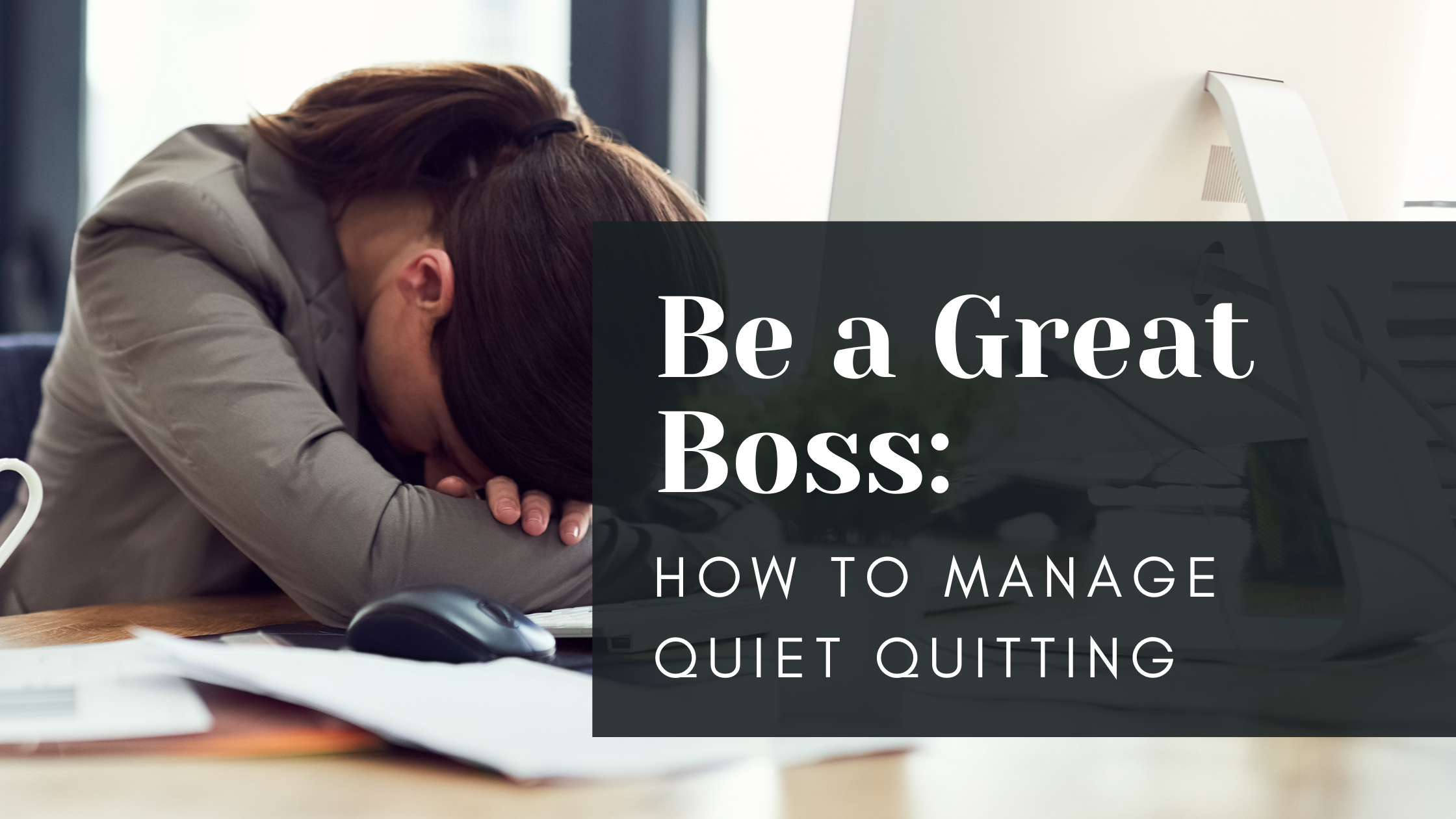The newest business and work trend all over social media right now is the term “Quiet Quitting.” Quiet Quitting refers to remaining in one’s workplace while not actively going above and beyond. Many employees are setting boundaries in their workplaces–this means not working past 5 pm, not working over the weekends, etc. The hustle culture is seemingly over, with Quiet Quitting sweeping the workforce. Employees are rejecting the idea that work is life.
Have you ever heard of the idea that Americans live to work while the world works to live? I remember hearing that sometime in college, and I thought, “Wow, that is so crazy.” Then I forgot all about it until I visited other countries and visibly saw people living their lives without working 40+ hours each week. Here’s looking at you, Spain.
Where Quiet Quitting Came From
Quiet Quitting is a result of the Great Resignation and Reshuffle. Many people in the workforce are fed up with overworking themselves. After the Pandemic, people, especially those with families, are now prioritizing their health and time with families over work. People are looking for flexible and predictable work schedules, and they have decided they want to work when it fits their time.
The trend seems to have started when career coach, Brian Creely, said in a 2020 interview, “Are you somebody that has quiet quit on the job? Let me know in the comments below.”
Since then, people have posted all over TikTok, Instagram, and Twitter about how they are Quiet Quitting. Gen X, Gen Z, and baby boomers are all participating in Quiet Quitting and talking about it on social media. Essentially, Quiet Quitting has gone viral on all social media platforms and in real life.
Is Quiet Quitting Terrible, Awful, No Good?
Many managers are upset. It is upsetting when your team decides to no longer go above and beyond without reward. Free work is great when you’re on the receiving end! Critics of the trend call it a “recipe for disaster” or “shooting yourself in the foot,” but this trend is here to deal with whether business owners and managers like it or not.
Quiet Quitting is not all bad. First of all, it is preventing vital members of your team from burning out and leaving altogether. Second of all, when have boundaries been a bad thing? Why do we have to make work the biggest priority in our lives when we have families, hobbies, or other things to focus on in our lives?
How to Successfully Deal with Quiet Quitting
How should businesses deal with this seismic shift in the workforce?
Communicate with your team! Discuss each team member’s values and work expectations. If your employees understand their work requirements, they will meet those work requirements. Remember, Quiet Quitting means doing the bare minimum and not stressing about going above and beyond.
Reward your team for going above and beyond! Gone are the days of employees doing more work for free. Most employees have realized that there is value in the work they do. By rewarding your team members for going above and beyond, they will more than likely continue doing it.
Be on board with Quiet Quitting. Whether or not anyone on your team has discussed it with you, acknowledge it by encouraging your team members to de-stress. The whole point of Quiet Quitting is to not stress out about work all the time. Encourage your employees to take time off and use their vacation days. Encourage them to spend time with their families. Encourage them to prioritize their health. Showing your concern for each team member is extremely valuable for your company’s morale.
Needless to say, Quiet Quitting is not something that can be swept under the rug to deal with at a later time. Great bosses will see value in their employees, and use Quiet Quitting to their advantage. Check out our YouTube video on profits and processes to learn how you can gain profits even during the recession. Then make the conscious decision to adjust your business processes so your key team members can focus on core business work for your company.




